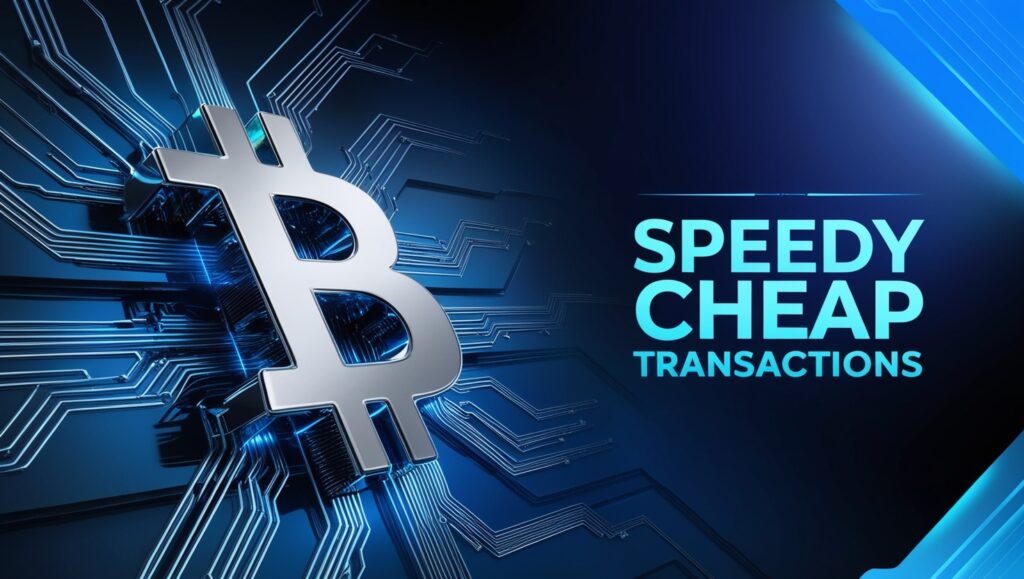Blockchain technology, which first appeared in the form of Bitcoin, has spread way beyond cryptocurrency to transform nearly all sectors, especially financial. It is decentralized, open, and secure, providing modern alternatives to traditional financial systems while lowering costs and increasing speed. Here’s how blockchain reshapes the financial industry.
Table of Contents
Security at its Best and Transparency at Its Best
Blockchain’s decentralized ledger makes transactions immutable: the transactions are impossible to alter, and such high levels of security and transparency would make it very hard for fraud to spread through financial systems in its use.
- Immutable record of transactions.
- Reduces fraud and tampering.
- Increases trust through transparency.
Speedy and Cheap Transactions
It is as slow as the commercial banks from the point of inter-country payment. It is saving time by reducing necessary intermediaries for providing peer-to-peer transactions, again cost-effective and, in addition, free from historical intermediaries.

- Speedy transactions.
- Low-cost transactions.
- Eliminates third party intermediaries.
Improved Risk Management
Blockchain strengthens risk management by offering a transparent, immutable transaction record, enabling real-time monitoring and reducing fraud. It helps financial institutions make informed decisions, lowering exposure to risks. Additionally, its decentralized structure minimizes systemic risks, enhancing the overall resilience of financial systems.
- Transparent, immutable transaction records for better risk tracking.
- Real-time data allows informed decision-making and fraud reduction.
- Decentralized structure reduces systemic risks and increases resilience.
Smart Contracts for Automation
Smart contracts are self-executing contracts written directly into the blockchain that remove third-party intermediaries. They activate themselves in an automatic fashion, basically eliminating human error as well as transactional costs.
- Automates processes and agreements
- Reduces reliance on third-party intermediaries
- Cuts down on operational costs
Decentralized Finance (DeFi)
Blockchain is the base of DeFi, which is the removal of traditional financial institutions from lending, borrowing, and trading. DeFi platforms make it possible for users to perform financial services without banks. This means that more access to financial services is realized.
- Bankless financial services.
- Expands financial inclusion.
- Democratizes access to financial tools.

Better Cross-Border Payments
Blockchain cuts down on costly intermediaries involved in cross-border payments, making transactions faster and more affordable across borders.
- Faster international transactions.
- Reduced fees for cross-border payments.
- Improved efficiency in remittances.
Tokenization of Assets
Blockchain enables the tokenization of real-world assets like real estate and stocks, enabling fractional ownership and easier trading of those assets.
- Fractional asset ownership.
- Easy access to assets.
- It boosts liquidity in illiquid assets.
Enhanced Identity Verification
Blockchain provides secure and unchangeable digital identities that may reduce the processes involved in Know Your Customer (KYC) and Anti-Money Laundering (AML) procedures. This means the customers’ identities are well-verified for fraud reduction and high compliance.
- Secure digital identities
- KYC/AML procedure is made simple
- Reduces identity theft and fraud
Less Operation Costs for Banks
Blockchain can streamline the operations in banks by automatically performing routine chores, lowering administrative costs and making general efficiency better. Smart contracts and automated settlement mean overhead cost savings for a bank on a large scale.
- Reduces costs of operation.
- Better efficiency in banking processes
- Routine banking functions to be automated
Conclusion
Blockchain technology fundamentally alters the financial sector through security improvements, cost reduction, and increasing efficiency. As blockchain increases its adoption, it promises to change the very method through which financial systems globally are operated by allowing speedier, more transparent, and inclusive financial services.
FAQ’s
How is blockchain changing financial services?
Blockchain improves financial services through increased security, lower costs, faster transactions, and reduced intermediaries, which increase transparency and financial inclusion.
How can blockchain technology revolutionize global finance systems?
Blockchain will change global finance through decentralized processes, reduced fraud, reduced costs, and increased efficiency, making finance services faster, cheaper, and more accessible.